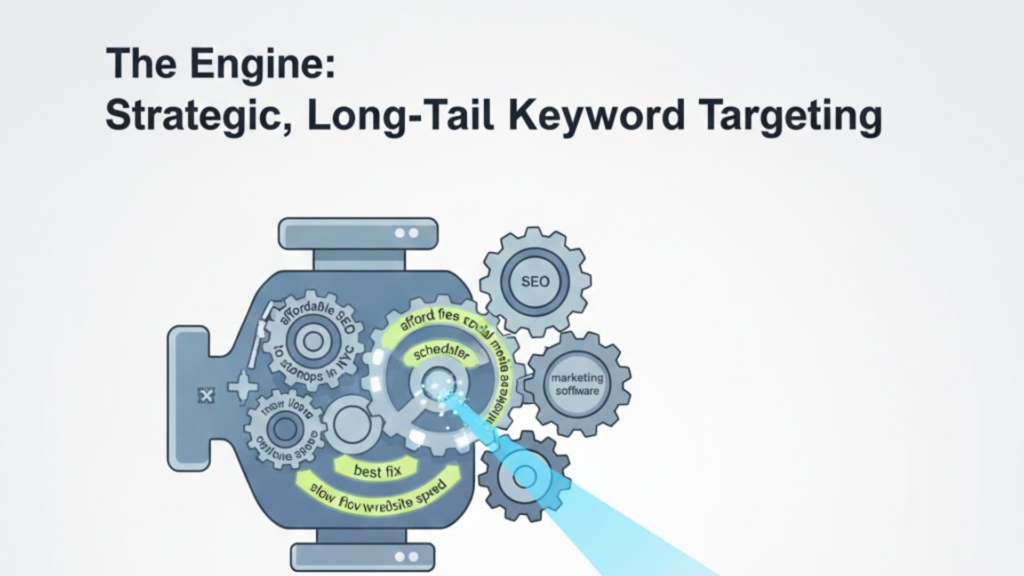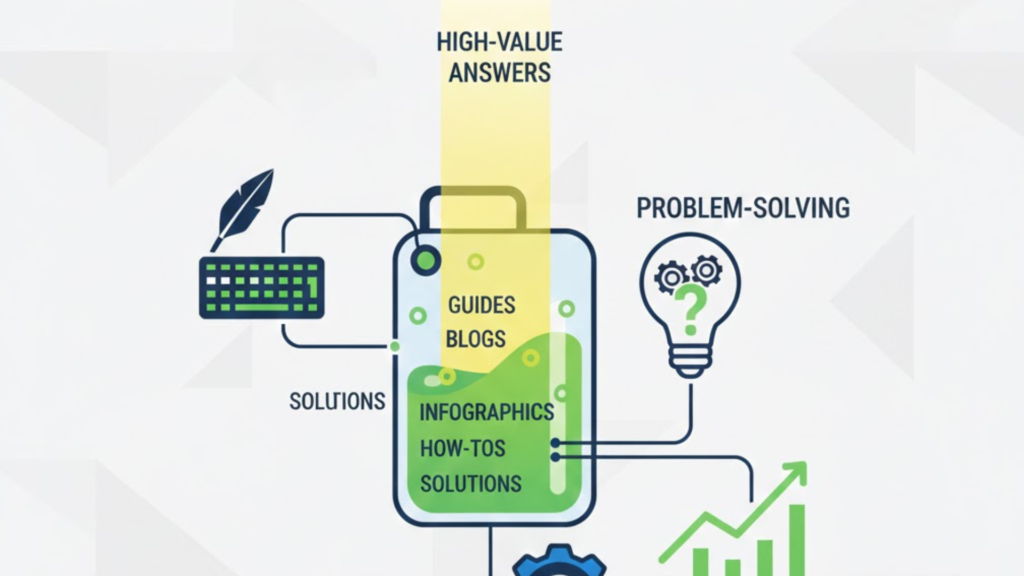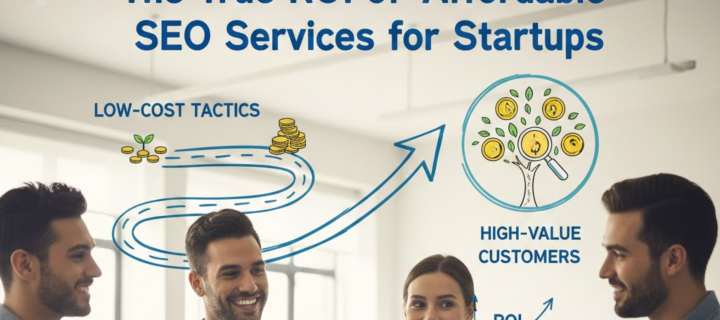In the hyper-competitive digital marketplace, the battle for visibility often feels like a David vs. Goliath story. Startups, fueled by ambition but constrained by lean budgets, struggle to compete with established companies pouring millions into digital marketing.The prevalent myth is that effective SEO—the engine of sustainable online growth—is exclusively a costly endeavor. This misconception often leads new businesses to ignore their most powerful growth asset. However, the truth is that securing genuine, high-quality visibility does not require a massive budget.For the agile, resource-aware startup, investing in Affordable SEO Services for Startups is not merely a budget-friendly compromise—it is the smartest long-term investment. By focusing on high-leverage, low-cost strategies, a startup can build an organic traffic machine that consistently delivers high-value customers, offering an ROI that expensive paid advertising simply cannot match. This comprehensive guide details exactly how to implement these low-cost tactics for maximum effect.
I. Demystifying ‘Affordable SEO’: It’s About Efficiency, Not Cheapness

Before diving into tactics, it’s crucial to define what “Affordable SEO” means in the startup context. It is not about buying cheap, spammy links or engaging in keyword stuffing—those “black hat” methods offer fleeting gains but guarantee severe, costly penalties.
Affordable SEO Services for Startups embodies several core principles:
- Strategic Focus: Concentrating limited time and budget on activities that move the needle the most (e.g., conversion-focused content over vanity metrics).
- Resourceful Implementation: Leveraging free or low-cost tools and platforms, making time the primary investment, not capital.
- Sustainable Growth: Building organic assets that generate compounding returns, meaning the effort invested today continues to pay dividends for years to come.
The Startup SEO Mandate: Focus on quality and user intent. Google’s algorithm is designed to reward websites that genuinely help their users, a core principle that costs nothing to implement.
II. Low-Cost Technical SEO Essentials for Startups Using Affordable SEO Services

A technically sound website is the bedrock of successful SEO. Most of the crucial technical aspects can be addressed with free or low-cost tools and a basic understanding of web development best practices.
1. Site Speed and Core Web Vitals (Zero Cost, High Impact)
Google rigorously evaluates website performance. Slow sites suffer immediate ranking disadvantages and higher bounce rates.
- Diagnosis: Utilize Google PageSpeed Insights and GTmetrix (both free) to diagnose issues impacting Core Web Vitals (LCP, FID, CLS).
- Image Optimization: Compress all images using free tools (like TinyPNG) before uploading.
- Caching & Lazy Loading: Implement a reliable, free caching solution and set media below the fold to “lazy load,” significantly boosting initial page speed.
2. Essential Free Tools for Setup and Communication
Every startup needs to establish a direct line of communication with Google.
| Tool | Cost | Primary Function | Startup Benefit |
| Google Search Console (GSC) | Free | Submit XML Sitemap, monitor crawl errors, track query performance | Direct feedback on indexing and technical health. |
| Google Analytics (GA4) | Free | Track user behavior, measure conversion paths, segment traffic | Measure the ultimate ROI and identify high-value users. |
| Google My Business (GMB) | Free | Local listing management, review collection | Essential for local search visibility and trust. |
III. The Engine: Strategic, Long-Tail Keyword Targeting

The most expensive mistake a startup can make is targeting highly competitive, short-tail keywords. Affordable SEO Services for Startups require surgical precision in keyword research.
1. Focusing on the Long-Tail (The High ROI Sweet Spot)
Long-tail keywords (phrases of three or more words) represent highly specific user intent and are easier for startups to capture.
Why the Long-Tail Strategy Works:
- Lower Competition: Larger competitors often overlook these specific niches, allowing a startup to rank faster.
- Higher Conversion Rate: Users searching with specific questions are typically further down the purchase funnel and are looking for an immediate solution.
- Affordable Tools: Leverage free resources like the Keyword Planner within Google Ads (requires a free account) or free versions of tools to identify these opportunities.
2. Mapping Keywords to the Sales Funnel (High Value, High Trust)
To truly generate high-value customers from your organic efforts, you must match your content to the user’s intent at every stage of the funnel:
| Funnel Stage | User Intent | Example Keywords Targeting | Goal |
| Awareness (TOFU) | Problem Identification | “signs my business needs X,” “cost of marketing for startups” | Educate and capture email leads. |
| Consideration (MOFU) | Solution Comparison | “Trello vs Asana pricing,” “best free CRM software 2025” | Demonstrate expertise and guide choice. |
| Decision (BOFU) | Immediate Purchase/Service | “Affordable SEO Services for Startups,” “Buy X software free trial” | Convert to paying customer. |
IV. The Fuel: High-Value, Problem-Solving Content Marketing

Content is the primary vehicle for achieving high rankings and establishing authority. This should be the biggest time investment for any startup.
1. The 10x Content Principle (Affordable Authority)
Instead of producing 10 mediocre, surface-level blog posts, dedicate time to creating one piece of content that is genuinely ten times better than anything currently ranking for your target keyword.
How to create 10x content with low cost:
- Depth and Comprehensiveness: Cover every facet of the topic, answering all related user questions.
- Originality: Include proprietary data, internal case studies, or unique insights only your startup possesses.
- Usability: Structure the content with clear headings, tables, bullet points, and short paragraphs for easy scanning.
2. Strategic Content Structuring
Utilize the Pillar and Cluster Model—a highly affordable SEO method for boosting topical authority:
- Pillar Page: A comprehensive, broad guide on a major topic (e.g., “The Ultimate Guide to Digital Marketing for E-commerce Startups”).
- Cluster Content: Detailed blog posts on sub-topics (e.g., “Affordable SEO Services for Startups” or “5 Low-Cost Social Media Tactics for Startups”) that internally link back to the Pillar Page.
This interlinking reinforces the Pillar Page’s authority and helps cluster posts rank for specific long-tail terms.
V. Building Trust: Local SEO and Link Earning Tactics
Authority is measured by the quality and quantity of backlinks. Startups must focus on strategic link earning and local optimization, as link building can be costly and risky.
1. Master Local SEO with Google My Business (Free and Essential)
For service-based startups, GMB is the most effective and affordable SEO tool:
- Ensure your GMB profile is 100% complete with accurate information, high-quality photos, and detailed service descriptions.
- Implement a systematic review strategy: Politely solicit reviews from satisfied clients immediately after service completion. Positive reviews are a major local ranking factor.
2. The Broken Link Building Strategy (High-Value Link Earning)
This highly effective, low-cost link earning technique involves identifying relevant broken links on authority websites and creating better replacement content.
The Four Steps to Broken Link Building:
- Identify Targets: Find high-authority websites in your niche (industry blogs).
- Find Broken Links: Use a free Chrome extension like Check My Links to scan their pages for 404 errors.
- Create Better Content: Write a piece of content on your startup’s blog that is a significantly better replacement for the broken link’s topic.
- Outreach: Email the site owner, politely pointing out the broken link and suggesting your superior content as the fix.
VI. Measuring the True ROI: Beyond Just Rankings

The true value proposition of Affordable SEO Services for Startups is not a ranking position; it is a measurable reduction in Customer Acquisition Cost (CAC) and an increase in Lifetime Value (LTV).
The SEO ROI calculation is straightforward:
Since the “Total SEO Costs” for an affordable strategy are minimal (primarily time), the ROI quickly escalates as organic revenue increases.
Key Metrics to Track (Using Google Analytics):
- Organic Conversion Rate: This is the most critical metric. Track what percentage of organic visitors complete a desired action (e.g., signing up for a trial).
- Cost Per Acquisition (CPA) by Channel: Compare the CPA of organic traffic to paid channels (PPC, social media ads). Organic CPA should quickly drop toward zero, proving the efficiency of your efforts.
Frequently Asked Questions (FAQ) – Affordable SEO Services for Startups
Q1: How long does it take for Affordable SEO Services for Startups to show results?
A: While results vary, most startups should see noticeable improvements in traffic and keyword rankings within 3 to 6 months of consistent effort. Significant ROI, especially for high-value conversions, usually takes 6 to 12 months as authority builds.
Q2: Can a startup really compete without paying for premium SEO tools?
A: Absolutely. While premium tools (Ahrefs, SEMrush) save time, a startup can manage effectively using free alternatives like Google Search Console, Google Analytics, Google Keyword Planner, and various free Chrome extensions. Time and strategic thinking are more important than tool cost.
Q3: Should I outsource my SEO or do it in-house?
A: For truly Affordable SEO Services for Startups, it is best to manage content creation and internal linking in-house (as you are the subject matter expert). Technical audits and advanced link earning can be outsourced later, but the core strategy and content execution should remain internal initially.
Conclusion: SEO is the Smartest Budget Allocation for Startups
For a startup, choosing Affordable SEO Services for Startups is a strategic choice to prioritize long-term, sustainable growth over temporary, expensive spikes.
By focusing relentlessly on technical efficiency, high-intent long-tail keywords, problem-solving 10x content, and strategic link earning, any startup can bypass the high-cost barriers and build a formidable online presence.
SEO is not an expense—it is digital equity. Every piece of quality content and every earned backlink becomes a compounding asset that reduces your reliance on expensive paid channels, ultimately leading to a lower customer acquisition cost and a higher, more defensible market position. This is the true, enduring ROI that smart startups are built upon.








